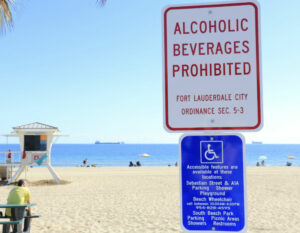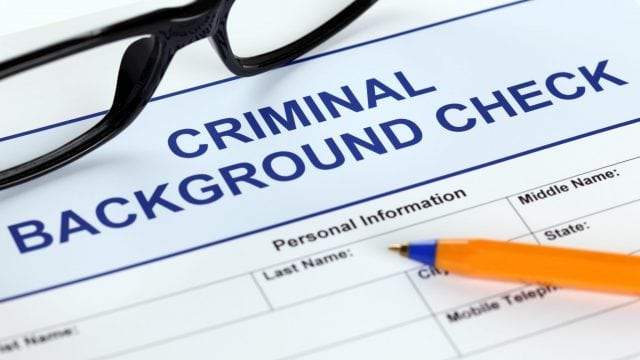Court Rules that Clean Slate Expungement Statute Allows Expungement of Local Ordinance Violations that Were Originally Charged as Criminal Offenses
On November 19, 2021, the Superior Court of New Jersey handed down  a new legal decision representing a big win for people with criminal records. The decision, State v. R.O.-S., was published on December 12, 2022, and allows individuals applying for expungement under the Clean Slate expungement law to expunge records of criminal charges that were downgraded to local ordinance violations. Until this point, the law was unclear as to whether or not local ordinances offenses were eligible under the Clean Slate act for expungement.
a new legal decision representing a big win for people with criminal records. The decision, State v. R.O.-S., was published on December 12, 2022, and allows individuals applying for expungement under the Clean Slate expungement law to expunge records of criminal charges that were downgraded to local ordinance violations. Until this point, the law was unclear as to whether or not local ordinances offenses were eligible under the Clean Slate act for expungement.
The New Jersey expungement lawyers at Katherine O’Brien Law tirelessly fought for the petitioners in this lawsuit to achieve the best outcome for them and others in their position. Because of their firm’s dedication, the pathway to erase your records and restore your rights is fairer and more just.
What Is the Clean Slate Expungement?
The New Jersey Legislature passed the “Clean Slate” expungement act in 2019, and it became effective as of January 1, 2020. Under the Clean Slate expungement law, people can submit a petition to expunge their criminal records if they can show that their convictions are ineligible for expungement under any other New Jersey law. Applicants must also meet the other requirements for expungement, such as that ten years have passed since the later of the following:
- Their most recent conviction,
- When they paid outstanding court assessments or fines,
- They completed probation or parole, or
- They were released from prison or jail.
The Clean Slate act makes it easier and more equitable for people to erase records after paying their dues to society. Some convictions are ineligible for expungement by law, but this broad act covers many who were previously left out.
The Clean Slate act allows people to erase from their records criminally charged offenses, which are those brought as crimes under New Jersey’s criminal code. Sometimes, people refer to these as “indictable” offenses because the prosecution brings them after they get an indictment from a grand jury, allowing them to proceed with the charges.
What Is a Local Ordinance Offense?
Local ordinance offenses are violations of a law that is not in the criminal code. For example, the Borough of Allendale, NJ, has a local ordinance that prohibits “yelling, shouting, hooting, whistling or singing on the public streets” in a way that disturbs the peace in the neighborhood, especially if done between 11 pm and 7 am. Local ordinance violations are typically civil charges, not criminal charges.
Sometimes, the prosecution reduces criminal charges to a local ordinance violation. Typically, this occurs during the plea bargain stage. The prosecution reduces the charges in exchange for the accused changing their plea. In the long run, this may benefit the accused because most local ordinances do not result in significant jail time. That said, the original criminal charge stays on their record unless they can remove it through the expungement or sealing process.
The Issue with Local Ordinance Violations Under the “Clean State” Expungement Statute
The Clean Slate act does not directly address local ordinances, which poses a problem for people charged with a criminal offense and later downgraded to a local ordinance violation. Even though they were not convicted of the criminal charge, it shows up on their record and carries a particular stigma.
For example, criminal charges appear when they apply for jobs and their potential employer conducts a background check. The criminal charges can impact the employer’s impression of the applicant, who may not receive employment, housing, or another opportunity because of it.
Before the recent clarification, this resulted in fundamental unfairness for many individuals seeking to expunge charges from their criminal records. When they were charged with the criminal offense, they engaged in a plea bargaining process that resulted in them pleading guilty to a local ordinance violation.
The local ordinance violation may not appear on their record, but the criminal charge does, even though it did not result in a conviction. This adversely impacts their lives for years to come. The result is unjust by any standards, especially where the person leads a law-abiding life and is no longer the person they were when they received the charges.
The Decision in State v. R.O.-S.
In State v. R.O.-S, the petitioners, R.O.-S. and C.C., both had criminal charges on their records that the prosecution reduced to local ordinance violations. For example, the State charged R.O.-S. with the criminal offense of “Theft” but reduced it to “Loitering,” a local ordinance violation. They applied to expunge the criminal charges from their records under the Clean Slate act. The State objected to the expungement, claiming that the Clean Slate act does not cover local ordinance violations.
In the case, Katherine O’Brien Law argued that the Clean Slate act allows for the expungement of records of criminal charges later reduced to a local ordinance violation. The language of the law is broad, and its intent is clear, even though it does not explicitly mention local ordinances. If people cannot expunge criminal charges from their records in this situation, it would undermine the statute’s intent and purpose. Further, it would create a strange situation for defendants where they could expunge a conviction if they plead guilty to a serious criminal offense but cannot expunge a criminal charge that resulted in a civil charge.
 The court ultimately agreed with our law firm and allowed R.O.-S. and C.C. to expunge their criminal charges that the State reduced to a local ordinance violation. In the future, eligible individuals can apply to erase from their criminal records charges that the prosecution downgraded to local ordinance violations.
The court ultimately agreed with our law firm and allowed R.O.-S. and C.C. to expunge their criminal charges that the State reduced to a local ordinance violation. In the future, eligible individuals can apply to erase from their criminal records charges that the prosecution downgraded to local ordinance violations.
What About the Expungement of Local Ordinance Offenses that Were Originally Charged as Local Ordinances?
The court is very clear that they did not express an opinion about whether someone can expunge a local ordinance from their record. The question is left open for the courts to address in future cases, where applicable.
Currently, local ordinances are presumed ineligible for expungement because, as of the date of this post, existing laws do not include them. However, a law change or new court opinion may impact this.
Conclusion
New Jersey’s Clean Slate act provides a pathway to fairness and freedom, especially in light of the new court opinion. Because of the court’s recent decision in State v. R.O.-S., people with criminal charges on their records who pled guilty to a local ordinance violation may apply for expungements. Under the new law, they can now reclaim opportunities previously unavailable to them.
Katherine O’Brien Law fearlessly fights for New Jersey’s citizens and is one of the only law firms in the state that specializes in expungements. We provide competent and proactive legal representation for transparent, flat fees. To schedule a free consultation, contact our office today.







